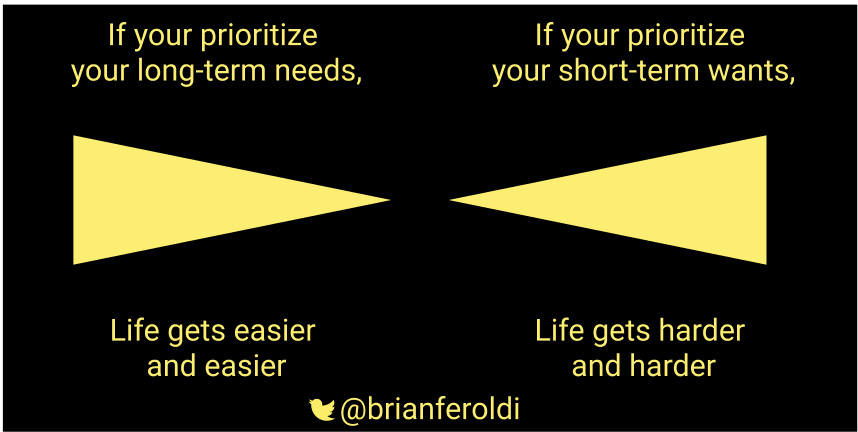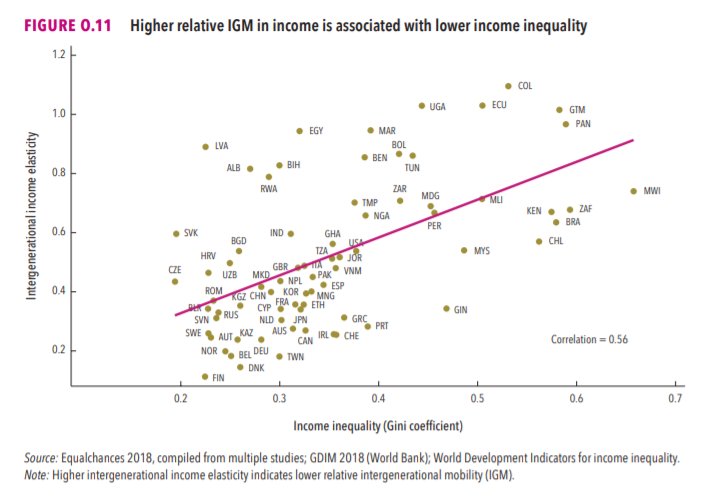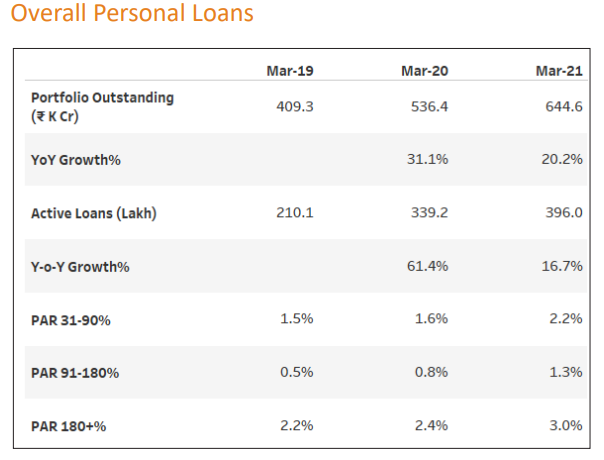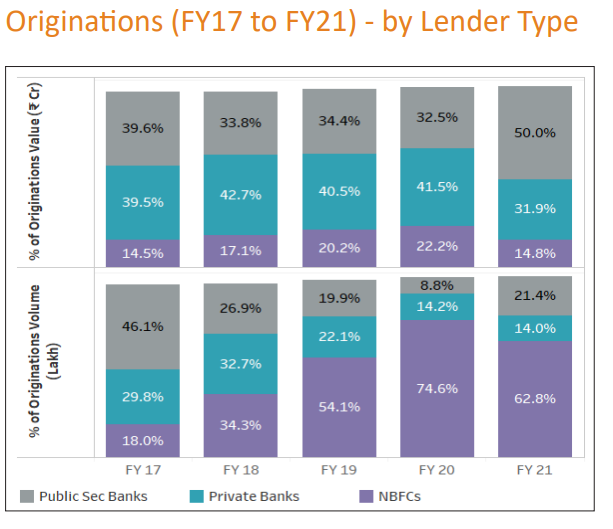Why are states in Nigeria not paid their share of the oil and gas earnings in the currency it was earned in, i.e., the United States Dollars (USD)?
More from Finance
Here’s what "financial wellness" means to me
⬇️⬇️⬇️⬇️⬇️⬇️⬇️⬇️⬇️⬇️
2/ Mindset
Humans are programmed to think short-term
Evolutionary, thinking short-term makes sense. It helps with survival.
Financial wellness is all about training yourself to develop a long-term mindset
Not easy -- it takes practice

3/ Mindset
If you join the right tribes, you can’t help but improve
My favs:
@AffordAnything
@ChooseFiFI
FinTwit
@MicroCapClub
@themotleyfoolFool
@visualizevalue
Twitter / Podcasts / Blogs / YouTube -- when used correctly -- are amazing
1/ YouTube is an AMAZING resource when used properly (Thread)
— Brian Feroldi (@BrianFeroldi) November 7, 2020
Here are my favorite YouTube channels:
Top 5:
Mark Rober - @MarkRober
Real Engineering
Smarter Every Day - @smartereveryday
Stuff Made Here - @stuffmadehere
Wintegartan - @wintergatan
More \U0001f447\U0001f447\U0001f447\U0001f447\U0001f447
4/ Mindset
Educate yourself - constantly!
Especially about:
1⃣Money
2⃣Relationships
3⃣Health
These 3 categories have an outsized influence on all areas of your life
Books
1/ Book recommendations (thread)
— Brian Feroldi (@BrianFeroldi) November 20, 2020
Start Here:
Choose FI
Richest Man in Babylon
Millionaire Next Door
Rich Dad, Poor Dad
The Wealthy Barber
\u2b07\ufe0f\u2b07\ufe0f\u2b07\ufe0f\u2b07\ufe0f\u2b07\ufe0f
5/ Career
In the beginning, focus on growing your income
Do more than what is expected
Become a lynchpin
Find a career that you ENJOY (<- important!) that also has high-income potential
Start a side hustle (<- important!)
Build your talent
Boosting your salary is a great way to turbo-charge wealth building
— Brian Feroldi (@BrianFeroldi) November 1, 2020
Here's the good news: Your salary is negotiable!@themotleyfool and @ChooseFi have some AMAZING free resources for scoring a big raise:
Use them!
\U0001f447\U0001f447\U0001f447
I wanted to know the best resources to learn about cryptocurrencies and blockchain for someone with zero knowledge. I asked Twitter, and Twitter answered.
This thread is a compilation of the best resources I was recommended. 👇👇
Let's start with ** BOOKS **
The first thing you should do before you pick up any book:
Learn about Bitcoin & Ethereum by reading the respective whitepapers.
- [Bitcoin white paper](https://t.co/cErOaFn6QL) by Satoshi Nakamoto
- [Ethereum White paper] (https://t.co/0g5kYCGJGq) by Vitalik Buterin
Even if you are not tech savvy, you can get a good grasp about how blockchain functions from these papers.
1) *The Basics of Bitcoins and Blockchains: An Introduction to Cryptocurrencies and the Technology that Powers Them* by Antony Lewis
This book covers topics such as the history of Bitcoin, the Bitcoin blockchain, and Bitcoin buying, selling, and mining.
It also answers how payments are made and how transactions are kept secure.
Other cryptocurrencies and cryptocurrency pricing are examined, answering how one puts a value on cryptocurrencies and digital tokens.
You May Also Like
These setups I found from the following 4 accounts:
1. @Pathik_Trader
2. @sourabhsiso19
3. @ITRADE191
4. @DillikiBiili
Share for the benefit of everyone.
Here are the setups from @Pathik_Trader Sir first.
1. Open Drive (Intraday Setup explained)
#OpenDrive#intradaySetup
— Pathik (@Pathik_Trader) April 16, 2019
Sharing one high probability trending setup for intraday.
Few conditions needs to be met
1. Opening should be above/below previous day high/low for buy/sell setup.
2. Open=low (for buy)
Open=high (for sell)
(1/n)
Bactesting results of Open Drive
Already explained strategy of #opendrive
— Pathik (@Pathik_Trader) May 27, 2020
Backtested results in 30 stocks and nifty, banknifty.
Success ratio : approx 40-45%
RR average 1:2
Entry as per strategy
Stoploss = Open level
Exit 3:15 PM Or SL
39 months 14 months -ve, 25 +ve
Yearly all 4 years +ve performance. pic.twitter.com/nGqhzMKGVy
2. Two Price Action setups to get good long side trade for intraday.
1. PDC Acts as Support
2. PDH Acts as
So today we will discuss two more price action setups to get good long side trade for intraday.
— Pathik (@Pathik_Trader) June 20, 2020
1. PDC Acts as Support
2. PDH Acts as Support
Example of PDC/PDH Setup given
#nifty
— Pathik (@Pathik_Trader) June 23, 2020
This is how it created long setup by taking support at PDC.
hopefully shared setup on last weekend helped. pic.twitter.com/2mduSUpMn5
This New York Times feature shows China with a Gini Index of less than 30, which would make it more equal than Canada, France, or the Netherlands. https://t.co/g3Sv6DZTDE
That's weird. Income inequality in China is legendary.
Let's check this number.
2/The New York Times cites the World Bank's recent report, "Fair Progress? Economic Mobility across Generations Around the World".
The report is available here:
3/The World Bank report has a graph in which it appears to show the same value for China's Gini - under 0.3.
The graph cites the World Development Indicators as its source for the income inequality data.

4/The World Development Indicators are available at the World Bank's website.
Here's the Gini index: https://t.co/MvylQzpX6A
It looks as if the latest estimate for China's Gini is 42.2.
That estimate is from 2012.
5/A Gini of 42.2 would put China in the same neighborhood as the U.S., whose Gini was estimated at 41 in 2013.
I can't find the <30 number anywhere. The only other estimate in the tables for China is from 2008, when it was estimated at 42.8.

















